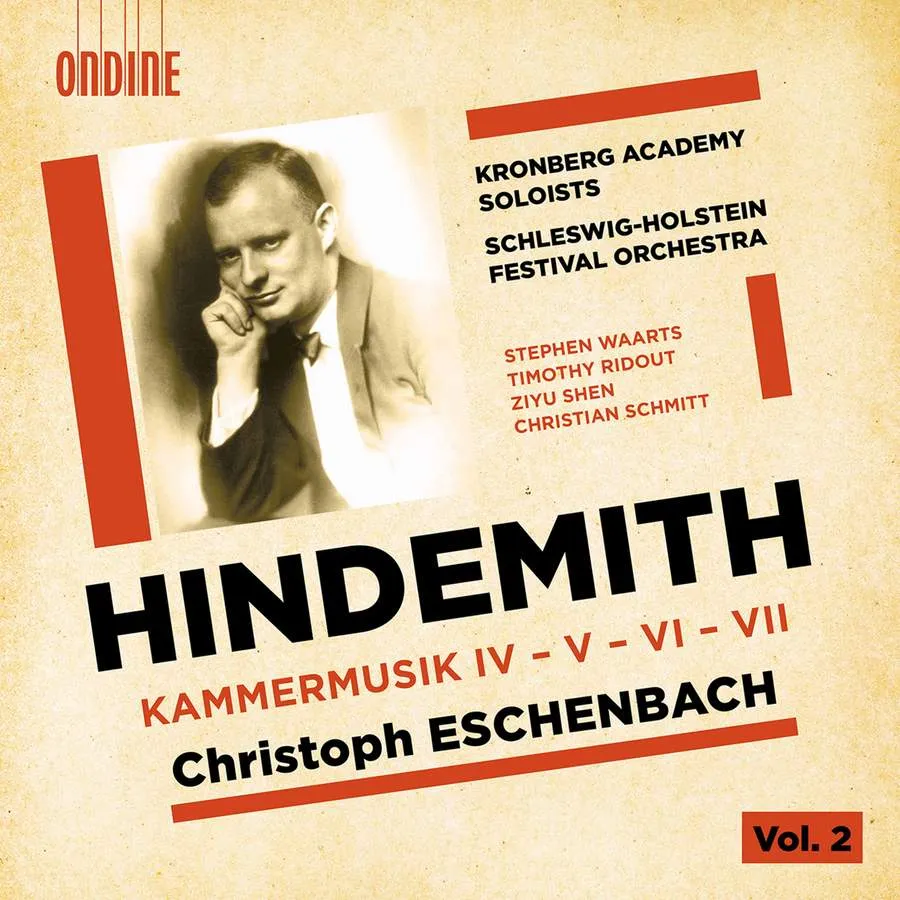
Hindemith Kammermusik Nos 4-7 Stephen Waarts (violin), Timothy Ridout (viola), Ziyu Shen (viola), Christian Schmitt (organ); Kronberg Academy Soloists; Schleswig-Holstein Festival Orchestra/Christoph Eschenbach Ondine ODE 1357-2 73:64 mins
In 1920s Germany, even music manuscript paper was in short supply, one reason why Hindemith composed for smaller ensembles during this period. But the ‘new objectivity’ sweeping the arts also called for something detached, a sort of Weimar-era answer to the Brandenburg Concertos, as can be heard especially in the five movements of the Kammermusik No. 4 for solo violin and large chamber orchestra. This vivid work opens with a pungent fanfare, its colours stemming from jazz-band instrumentation and the absence of orchestral violins. Stephen Waarts plays the solo part with brilliant attack. A long, central ‘Nachtstück’ conveys the uneasiness of the times.
This is the second part of Christoph Eschenbach’s complete series of the Kammermusik, recorded with the Kronberg Academy Soloists (strings) and Schleswig-Holstein Festival Orchestra (wind and percussion). It’s every bit as exciting as the first volume. The works, all written between 1924 and 1929, include the viola concerto (Kammermusik No. 5) Hindemith himself premiered as soloist. Its outer movements are lively, but Timothy Ridout also captures the sorrowful tone of its central movement. No. 6 reflects Hindemith’s interest in early music, featuring what he called the ‘indescribable sweetness and softness’ of the viola d’amore, and Ziyu Shen’s playing certainly evokes that. Composed for a pioneering radio transmission, the Kammermusik No. 7 is a compact organ concerto, delivered exhilaratingly yet with contrapuntal clarity by the soloist Christian Schmitt. Eschenbach has a special feeling for this music, and his project is well worth exploring.
John Allison